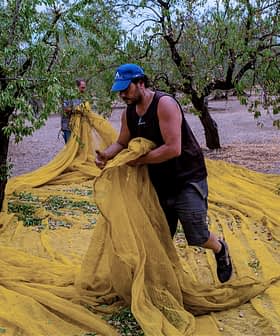The U.K. Department for Environment, Food and Rural Affairs (Defra) has issued new guidelines on bringing olive and almond plants into the UK. The new rules were introduced to prevent Xylella fastidiosa from entering the country and apply to plants imported from both E.U.-member states and non-EU countries.
See Also:Xylella Fastidiosa UpdatesThe new regulations published on the GOV.UK website requires that imported olive and almond plants meet specific criteria relating to production, inspections and labeling.
Plants imported from the E.U. will need to state their place of production and inspection details in addition to the compulsory attached plant passport. Imported plants from non-European countries are required to state the place of production and inspection details on a phytosanitary certificate.
Readable, undamaged, and tamper-proof labels or plant passports detailing the place of production must be on the plant’s container and the place of production must be verified by an official from the National Plant Protection Organization (NPPO) who is required to stamp the label accordingly and provide a signed letter.
Only olive and almond trees originating from an approved list of registered production places (where they must have grown for at least a year) may be imported into the UK.
Confirmation is required that a plant’s place of production and its 200-meter surrounding area has been Xylella-free for one year before the plant is imported.
NPPO registered laboratories are required to test plants during active growth and when adult vectors are present. The plants must have official annual inspections carried out at their registered place of production by a competent authority using a 99 percent reliable sampling scheme.
Plants must be inspected for Xylella prior to being moved from their registered place of production and may need a second test prior to being exported. (The second test will be at the discretion of NPPO officials.)
Any plant displaying symptoms must be officially tested for Xylella according to agreed international standards. All plants originating from areas where Xylella has struck must be entirely physically protected for four years prior to export.
Earlier this year Dame Helen Mirren lent her support to the U.K.‘s efforts to keep the deadly plant disease out of the country by narrating a Xylella fastidiosa prevention video.








